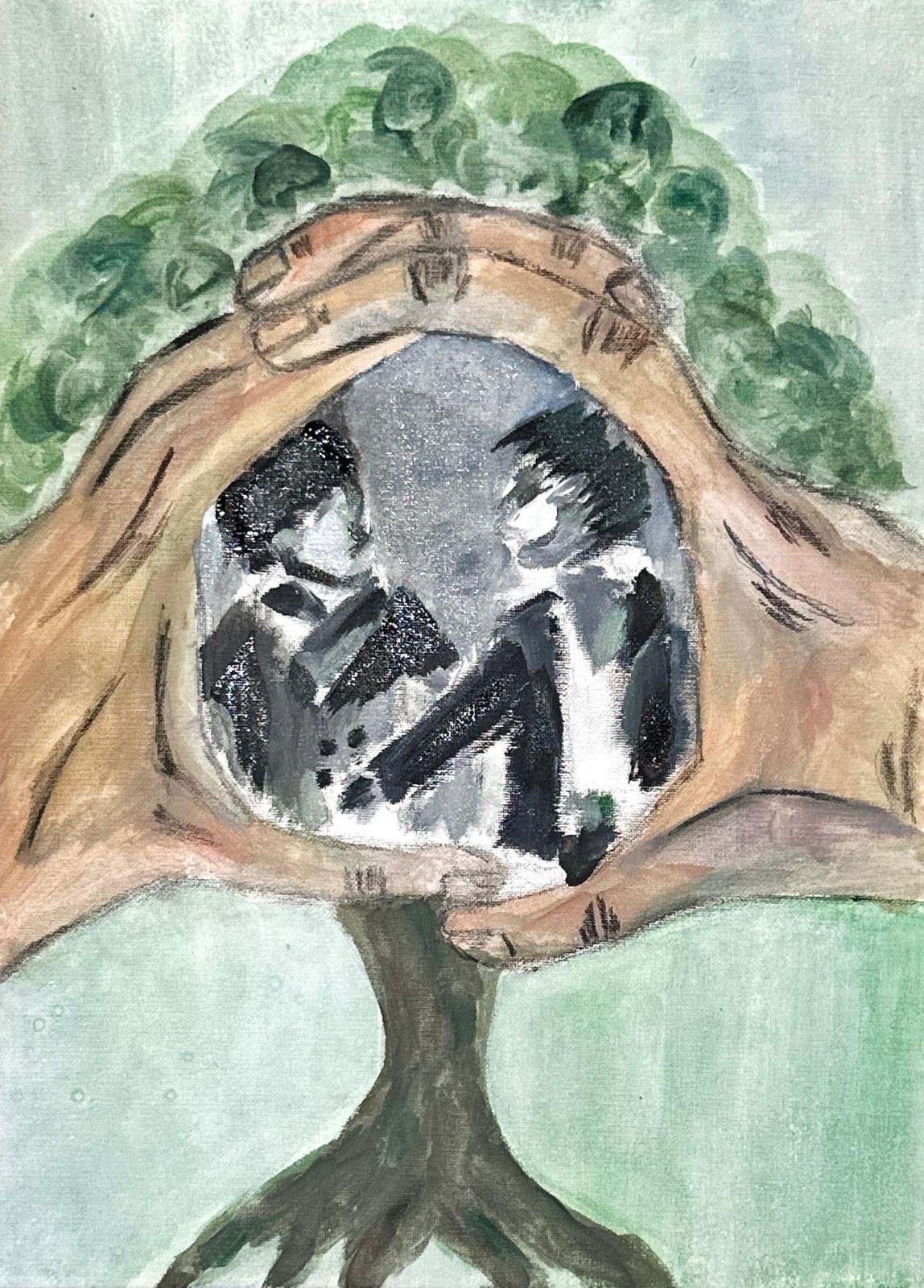‘Being Friends’ Review
A review of ‘Being Friends’ , in the Corpus Playroom until the 26th of October
The physicality of the characters, played sensitively by Jaysol Doy and Rafael Griso Dryer, results in a performance that is both subtle and gentle. The slow moving of the farmer and artist in a barren Kentish field, their attentiveness to one another as they share a loaf of bread and a bag of cherries appears to be an expression of a reciprocal bond, one that reveals an affective desire. It is this desire that appears to sit underneath the entire play, evident when the characters speak of their loves, affairs and the places they grew up in and have now left.
“has a stake in a greater love”
Directed by Eoin McCaul, the play’s attention to the histories of the characters relative to their present places in the play demonstrates a perceptive sense of place. The farmer's announcement that he was from ‘over there on the farm’, his glances at a place beyond the boundaries of the set and the audience contends with the theatre as a confined space that is constantly, always, trying to stretch further and beyond. The lighting of the set contends too with this focus on the here, and search for something outside. The ‘simple love’ Eric proclaims to feel for his lover, who is away in London, indicates the manner in which the visceral sensitivity that is at play between the two men in the field has a stake in a greater love. This great love follows the narrative of the play, and lends itself to a sense that the play is really a small thing, a small moment amongst many that is trying to arrive at something greater.
“ visceral sensitivity”
This attempt to arrive at something else is not for a lack ,however, but rather demonstrative of the movement of love between people, the fluid relationality that exists amongst friends and lovers. The very act of being friends. This act is intimately rendered by the men as they agree together that; ‘we are very different characters’. Here, difference does not drive away the Southern artist from the Northern farmer, rather it appears to bind them, a difference of character that does not dictate a beginning or end but a continuation beyond the field, beyond Kent. When Eric calls on Oliver to ‘take cover’ from a plane overhead, we are reminded of the materiality of the play and its setting in 1944. Eric’s tender call, and Oliver’s defiance in the face of this, as he stands in the field to look above at a plane we cannot see but only hear serves as a point of rupture, where the difference between the two is most exposed. This rupture in the play is vulnerable and revealing, and yet still lends itself to the great story of their meeting, their difference and love despite. The play, I think, is most successful in this moment when it accepts and does not contest Eric and Oliver’s essential characters. This essentiality, that is able to stretch and converge in their meeting on the field drives the play to its beautiful end.
“beautiful end”
Poster for ‘Being Friends’, designed by Gaia Dratwinska

